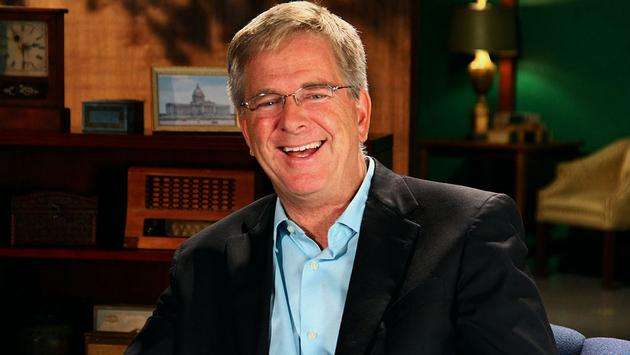Travel activist, renowned author and TV host Rick Steves has weighed in on the ways in which he believes the COVID-19 pandemic may continue to impact travel as it begins to resume in earnest. He recently spoke with global education expert Karin Fischer in a recorded interview entitled “The Future of Travel with Rick Steves”, now available online through event host The Fund for Education Abroad (FEA).

The virtual event was the first of a new series of virtual events called FEAtured Perspectives , which will feature conversations on travel and education to commemorate a decades’ worth of increasing access to worldwide experiences for underrepresented students, made possible through scholarships for studies abroad funded by FEA.
America’s most respected authority on travel to Europe , Steves spoke on several subtopics, including the importance of travel in broadening one’s worldview; especially since increased globalization and the advancement of technology continue to make the world smaller and more connected.
He observed that, going forward, the availability of vaccines will affect international travel as it resumes; and that it will be the world’s developed countries that will receive vaccine quantities and achieve herd immunity first. He also predicted that many unique mom-and-pop businesses, smaller local sites and museums that have been deprived of funding during the pandemic may have disappeared forever.
“A friend of mine runs a museum in Arkansas,” Steves explained. “He figures a good percentage of museums who have had to close will not re-open. That’s my biggest worry...all the little mom-and-pops. These are the charming entrepreneurial ventures that make traveling fun.”
He said that tour companies and travel guide publishers like his own will need to revisit destinations to determine which sites and small businesses have survived, and update their offerings and guidebooks accordingly. “Once this is over, that will be the biggest challenge for companies like ours. We will have to travel all over the world to see which small businesses are still open,” said Steves.
He also predicted that next-generation travelers are going to demand a more ethical approach to travel, adopted on an industrial scale. Besides becoming educated about ethical travel practices to follow during their trips, Steves said that travelers can also find ways to reduce their carbon footprint in terms of transportation.
He shared how his own Rick Steves' Europe small-group tour company began offsetting its own carbon impact.
“I made too much money, because nobody made me pay for the carbon. So, I gave myself a carbon tax of $30 per person. We invested $1 million in 10 different organizations in the developing world helping farmers employ climate-smart agricultural practices and organizations that are helping with reforestation and protecting forests,” Steves explained. “By investing in those organizations, we offset all the carbon it took to take 30,000 travelers to Europe and back. And the consumer gets the good feeling of knowing they went to Europe, at least as far as the flights are concerned, carbon-neutral. There’s nothing heroic on my part for doing this, it’s just ethical.”
The virtual event also included comments from three current FEA Scholars, who joined via video to provide firsthand accounts of their experiences of travel and studying abroad during the pandemic: Julie Kim of Temple University from Rome; Joy Bernal of the University of South Carolina from Barcelona; and Shadia Amir of Western Washington University from Chiang Mai, Thailand.
Click here to view the first installment of the FEAtured Perspectives livestream series, featuring Rick Steves’ interview., and for more information, visit fundforeducationabroad.org .

Leave a Reply